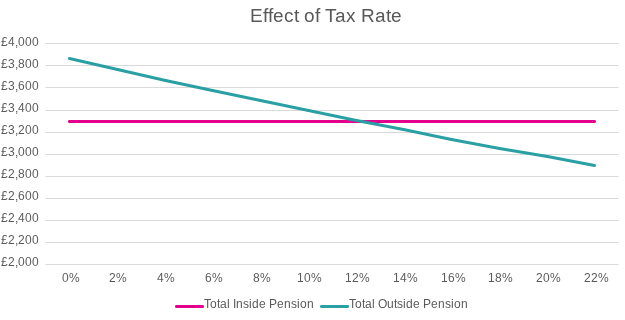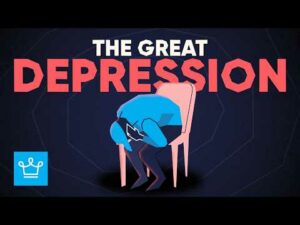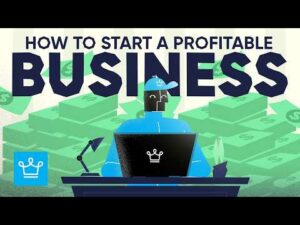Why Your Audience’s Attention Is the Only Metric That Truly Predicts Business Success—And How Most Entrepreneurs Get It Dead Wrong
Ever feel like your day is a never-ending game where you’re trying to pour water into a bunch of cups—but somehow, you’re always spilling some and leaving others dry? That’s exactly the metaphor Derek Thompson hammered home in his recent Substack post, “Whose Cup Are You Filling?” It hit me like a ton of bricks. Every morning, we start with a full pitcher—that’s our attention, our waking hours, our focus—and by day’s end, we’ve poured it out. But here’s the kicker: you can’t split water between two cups at once, just like you can’t truly give your attention to work while your mind’s halfway on family dinner or scrolling TikTok. We all say we value certain things, but if our attention is the true currency of what matters, who exactly are we spending it on? It’s a brutal—and kind of hilarious—reality check on just how honest we really are with ourselves. So, the question remains: Are you filling the cups you intend to—or just watering weeds? LEARN MORE
I recently got to know that long time star writer at The Atlantic Derek Thompson has s Substack.
His most recent post Whose Cup Are You Filling? resonated with me.
Derek thought about a game with simple rules:
- Every morning, you have a full pitcher of water and many empty cups.
- By day’s end, you pour all the water from the pitcher into the cups.
- The goal: Pour the water into the right cups.
If you think about it, we been playing this same game all our lives.
Instead of water, we been pouring our daily 24-hours, or 365-days into different things:
You have been playing this game your whole life. The game is attention. You are the pitcher. The water is your time: your ~17 daily hours of waking consciousness, all your care and focus and feeling. The cups represent everything you pour your thoughts and attention into. They are labeled: WORK, TIKTOK, WIFE, DISHES, EXERCISE, REGRET, PARENTS, ANXIETY, GOD.
But, by its nature, water cannot go into two cups simultaneously. When you’re listening to a podcast, you aren’t listening to your husband. When you are thinking about politics, you aren’t thinking about your sister. When you are working, you aren’t praying.
I do agree with Derek that it is quite easy for us to lie to ourselves about our values and priorities.
But attention cannot tell a lie. Our attention is the revealed preference of our values. Many people spend their whole lives emptying themselves without taking stock of the water levels of the cups into which they pour their existence. They spend hours, days, and decades watering cups that they never meant to water and leaving empty other vessels they always meant to fill.
Most of us can relate better to pouring water into cups.
Pouring water into cups is what makes some people understand and adopt the Envelope budgeting system (Can read about the Envelope budgeting system in this article here).
Money is like water in which you pour into what you spend on. You can lie about value and priorities but where you spend money shows your true intentions.
While each of us don’t always have a lot of money to allocate, we each have the same amount of time. But one of Derek’s important point is attention.
You can be aimlessly doing something but your attention is elsewhere.
For example, if someone makes a negative comment about my work, then I could be doing some work but 40% of my attention will be spending about why the fxxk the person gets to make a negative comment about my work.
It is not about allocating your time, or where you are but what are you thinking about.
I just spend 5 days in Thailand, walking around some similar and different places to Singapore but 90% of my mind is thinking about the same thing just like I am in Singapore.
Attentions can’t lie.
A dad that brings his family to Osaka for holiday might still have 50% of his attention on the same thing as in Singapore. Is he enjoying?
A good question because do you really need to be 100% of your attention on what you do in Osaka to be truly enjoying?
I don’t have a good answer but my guess is you do not need to be but that trip to feel like a restful experience.
If being restful and spending time with the family is high in priority then allocate your attention more to it.
As I was transiting back to Singapore, a journalist whom I knew was sharing that after speaking with people at Stashaway, Saxo and Syfe, the advise for most people is to go with a simple 70% equity and 30% fixed income allocation or 80% equity and 20% fixed income, between global equity and global aggregate bonds.
I think technically the fixed income portion is to
- Reduce the volatility of the portfolio so that when the volatility of the portfolio picks up, you can live with the portfolio, not sell out and be able to successfully harvest the returns over time.
- Still earn a good realized return in the long run.
You don’t have to be in 30% fixed income or 20% fixed income if your true risk capacity is pretty high.
But realistically, are you allocating $10,000 of your $2 million net wealth to this or are you allocating $1 million?
This is a significant question because how much main would you feel if
- $10,000 gets cut by 70% if you put in some risky stuff that has significant drawdowns.
- $1,000,000 gets cut by $700,000?
Many of these guides is meant for things/goals that is very meaningful to you, that failure of the goal is a pain significant enough.
Many that I came across never crossed over the $30,000- $50,000 investment chasm to the degree of what I allocated in say… Daedalus Income portfolio.
The main reasons I feel… is attention.
A lack of attention really.
To cross that chasm to put in 90% of your net wealth into something, you need to develop more significant conviction that this way of investing:
- Has real fundamental drivers.
- There are empirical evidence that show you can grow your money in a reliable manner.
- List out your significant and less significant worries you have and systematically untangle them.
Most people don’t do that because of attention.
They imagine that investing in this way is suppose to be passive, so their attention to the investment is passive.
The passive part about some of these systematic strategies will come later but I don’t think simple strategies can be easily understood so that you have high conviction (unless you trust someone like Kyith and blindly follow him!)
Usually if some strategies are simple, they embed a lot of important concepts that the portfolio manager (you) need to understand.
My journalist friend would know his or her answer just like me if he or she spends enough of their attention on it.
This was how we operate last time when we were trying to learn these stuff. Our attention is sometimes work, what to eat, but 80% of the time thinking about the stocks that we want to buy, and how not to ruin ourselves, how not to missed out on opportunities.
We definitely learn a lot by focusing so much of our attention on various nuances of individual stock investing.
That is important for scaling up.
However, is that as important now? Is spending 80% of my attention thinking about individual stocks how I want to allocate my attention?
I personally choose not to when I moved to a relatively full ETF portfolio (what you see in Daedalus). A significant part of the decision to do that is a focus on freeing up attention because I don’t want a high attention investment strategy.
But I spend enough attention upfront to understand the important “meta” of investing in a systematic-active or systematic-passive portfolio.
If you struggle to scale up, or that you could not develop conviction, maybe trust me a little and allocate more of your attention to thinking deeply about your investment.
If not, I hope you can find an adviser that is sophisticated enough, and have good integrity to help you unpack so that you can raise your conviction.
We can also give a lot of attention to our anxiety or what we dislike. And that attention makes the feeling even stronger which will one day eat us alive.
It is also how do we focus in that attention. If we spend enough of our attention systematically understanding something, and it allow us to move forward, then we see quality in that attention. However, If we keep worrying, and worrying, and worrying and don’t do much to go deeper and alleviate the concern fully, then you can’t fault yourself for not being attentive about something important but you got to fault yourself for not reframing and moving forward.
This is something for me to think about. Where to focus my attention on next.
If you want to trade these stocks I mentioned, you can open an account with Interactive Brokers. Interactive Brokers is the leading low-cost and efficient broker I use and trust to invest & trade my holdings in Singapore, the United States, London Stock Exchange and Hong Kong Stock Exchange. They allow you to trade stocks, ETFs, options, futures, forex, bonds and funds worldwide from a single integrated account.
You can read more about my thoughts about Interactive Brokers in this Interactive Brokers Deep Dive Series, starting with how to create & fund your Interactive Brokers account easily.

















Post Comment